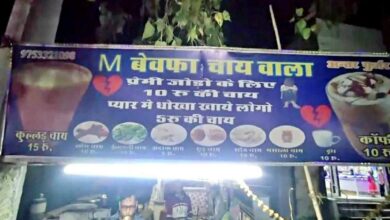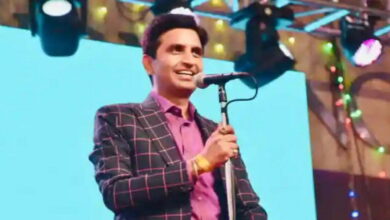Challenges after eight years

After the results of assembly elections in five states, including Uttar Pradesh, the number of people who believe that the 2024 election is a ‘Done Deal’ has increased. By the way, intellectuals have also lost hope, who were expecting a change in 2024 by the anti-incumbency after two consecutive rule. But is it really so? Is the 2024 election really a ‘Done Deal’? It is too early to make any predictions, as election strategist Prashant Kishor has been repeatedly saying that the Lok Sabha elections will be different from the state elections. That will be the country’s election and will be fought differently. Therefore, there is no need to get entangled in the speculation of election predictions or results from now on. Anyway, before the Lok Sabha elections, assembly elections are to be held in 10 states and their results will also create an atmosphere for general elections.
Before that, on the occasion of the completion of eight years of the Modi government, it is necessary to consider two things. First of all, what is the strength of Modi, by which he stays in power for a long time and defeats his opponents? Secondly, what are the challenges before them after eight years of rule? When we talk about challenges, it is not just the challenges posed by political opponents. There are some challenges which have arisen because of the decisions taken or not taken in time by the government in the last eight years. There are some challenges which have arisen due to the global situation and some challenges have arisen due to the circumstances being created in the country directly or indirectly with the help of the government or the ruling party. Right now it may seem that the circumstances that have arisen or have been done are favorable but ultimately they are going to cause harm.
If we talk about Narendra Modi’s method of staying in power for a long time or his strength, then two things emerge clearly. The first thing is his ‘larger than life’ image. This image was being created even before he became the Chief Minister of Gujarat. Now its climax has come. Now he is free from all kinds of allegations. No allegation sticks against him. It is a miracle that they remain untouched by the negative effects of wrong decisions of their own government. This is because even when bad is happening, she tells herself and her party that all is well. Like he has just said that in eight years he has not done any such work, which will bring shame to the country. His speeches like these are the most powerful tools for constructing a narrative. That’s when people were walking thousands of kilometers in the scorching sun or dying of lack of oxygen or facing inflation and unemployment, even then people are saying that what can Modi do alone?
His second strength lies in making constant change. Despite his tough and non-bending image, he is extremely flexible. Many such decisions can be cited as examples which they have changed. He changed the Chief Minister in Uttarakhand and felt that this decision was not right, then changed that Chief Minister in four months. The change of Chief Ministers from Gujarat to Tripura is also an example of this. When the land acquisition bill was opposed, he did not delay in withdrawing the bill. Similarly, farmers agitated against the three agricultural laws, even after a year, but they withdrew all the three laws. Similarly, when he was accused of helping the wealthy, he started the Pradhan Mantri Garib Kalyan Anna Yojana by making the disaster of Corona an opportunity. They do not hesitate to change their attitude according to the need and change decisions. This quality gives any leader the strength to fight a strong opposition. It is a different matter that the opposition is not strong in India. That too is a strength of Modi but it needs a separate thought.
As far as challenges are concerned, the Modi government is surrounded by them all-round. The biggest challenge is on the economic front. There is an unprecedented economic crisis in the country at this time. Inflation is at its peak. Unemployment is not decreasing. The number of poor has increased. The small and medium industry sector has completely collapsed due to the Corona epidemic and lack of incentives from the government. The informal sector, to which 90 percent of the country’s workers or self-employed are associated, was first devastated due to demonetisation and later the corona epidemic broke its back. The government is claiming an increase in exports, but imports have also increased in the same proportion. The condition of the market can be gauged from the fact that the government is taking its profit making companies in the market and buyers are not being found. LIC’s IPO has been falling continuously since its launch. To say that the government is claiming that the fundamentals of the economy are fine, but that is not right. That’s why the Reserve Bank has to increase the interest rates without caring about the growth rate. On the other hand, Russia-Ukraine war is not stopping and inflation in America is increasing in such a way that the world is expected to fall into recession again. This will have a big impact on the economy of India.
Apart from the economic crisis, a major challenge before the Modi government is the domestic situation. To fulfill the agenda of BJP and RSS, the government took some such decisions, which worsened the domestic situation. Similarly, electoral politics has led to a widening religious and social divide, which ultimately has an impact on everything. The Government of India is also in the dock regarding the freedom of constitutional institutions and media. It is a big challenge to fix the image of India that has been spoiled at the international level. How India’s image has deteriorated, it can be understood from some statistics.
India has slipped one place in the United Nations Human Development Index and 19 places in the United Nations Global Happiness Ranking. India has fallen 46 places in the Global Hunger Index, below countries like Bangladesh, Pakistan, Nepal etc. India has dropped 44 places in the Cato Human Freedom Index released by the American organization, while it has dropped 13 places in Davos’s Global Gender Gap Index. Apart from this, India has also gone very low in the Democracy Index of two global institutions. One organization has even described India as a partially independent country. Apart from this, whether it is the Climate Risk Index, the number of most polluted cities, the Air Quality Index or the World Press Freedom Index, India’s rank has come down. Even though it may seem that there is no political loss to it, but if this situation continues for a long time, then it may have to bear the brunt.






